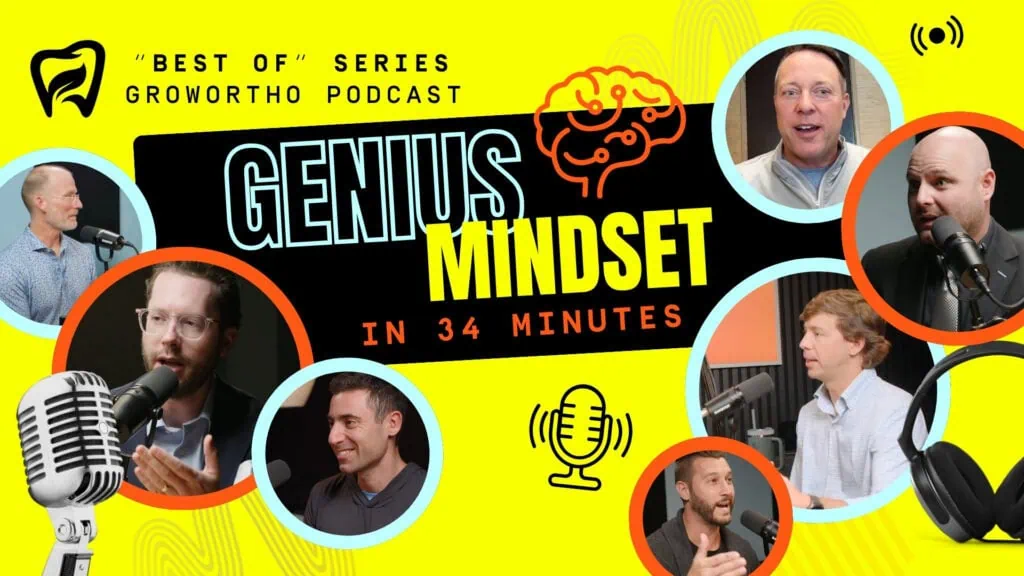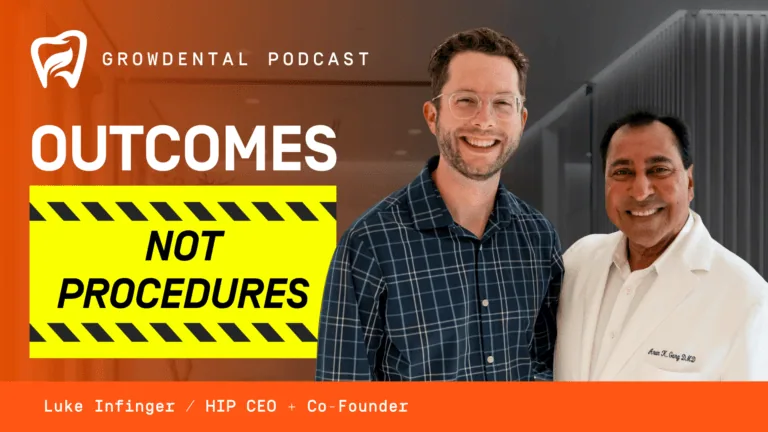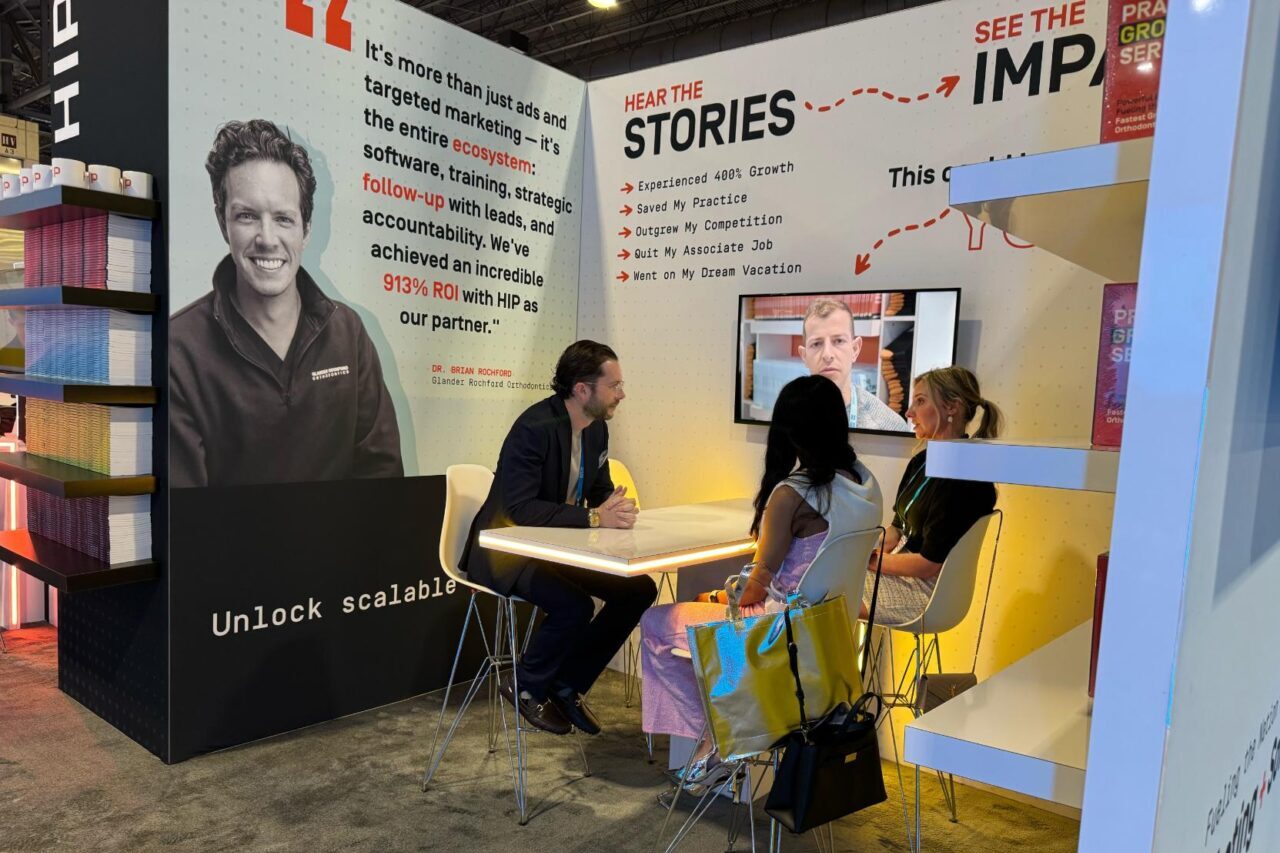Subscribe: RSS
You see someone in brackets at the grocery store. They’re not your patient. Feel that twinge? You’re not alone. Most of us were trained to think like rivals, to assume a fixed pie, to measure wins and losses street by street. But the founders and doctors who are actually winning play a different game entirely. They replace scarcity with abundance, define the real competition as household attention and discretionary dollars, and align their teams and systems to serve more people, better. That mindset shift changes everything: how you judge a lead, how you train your team, how you run a consult. The practices that grow fastest aren’t chasing neighbors. They’re building capacity to meet a much larger unmet need.
The False Scarcity And The Real Market
Here’s the early-career trap. Someone you know chooses another orthodontist, and frustration creeps in. Beneath that reaction sits a belief that there are only so many cases to go around. Wrong game.
You’re not mainly competing with other orthodontists. You’re competing with Disney+, home renovations, car payments, and a thousand other ways families spend limited time and money. The data backs this up: far more people could benefit from treatment than those who actually start each year. The smarter play is to expand demand and remove friction, not guard a tiny slice.
The abundance view is practical, not naive. When neighboring practices do better, your category grows, referral patterns stabilize, and you’re less likely to get sideswiped by zero-sum tactics. That’s a healthier, more durable competitive landscape for everyone.
From Offense To Service: Why No Lead Is A Bad Lead
Abundance shows up in daily behavior. It replaces judgment with service. Instead of labeling inquiries as “bad,” you ask how to make things easier for the customer. You design follow-up that respects timing, because timing is often the variable, not motivation. This shift lowers defensiveness and raises conversion over longer horizons.
The same applies to feedback. You can treat coaching as criticism, or as an opportunity to get better. Teams that choose the latter create compounding advantage because they improve faster than rivals who protect their ego. That attitude is ready for growth, and it spreads.
A related discipline is unoffendability. When leaders practice humility and resist taking things personally, they notice useful signals, adopt better ideas, and stay steady in front of the team. That steadiness is contagious in consults, in handoffs, in the waiting room.
Invest In The Team, Collect Pearls, Scale Quality With Systems
The fastest path to abundance is people investment. Bring your team to trainings, expose them to different offices, and collect “pearls” from good and bad examples. Some team members will move on. Invest anyway. The return on investment appears in better execution, faster adoption of best practices, and a wider base of capable eyes on your patients and processes.
This isn’t about novelty for its own sake. Elite operators are learn-it-alls, not know-it-alls. They obsess over fundamentals, build repeatable systems, and lead people to run those systems consistently. Phone answering, show rates, booking discipline, and conversion are boring words, yet they separate peak performers from everyone else. Control what you can control, and don’t let external cycles become excuses for poor fundamentals.
Run A Business That Happens To Be A Practice
When you view your work as a business that happens to be a practice, you listen to the customer first, not vendors or peers. You simplify choices and show the outcome patients care about, then provide clinical depth when they ask for it. Many practices unintentionally present like they’re defending a case to faculty. Patients mainly want a great result and a smooth experience. Make it easy for them to say yes.
This patient-first view doesn’t cheapen the craft. It clarifies it. The product is a confident, healthy smile and a frictionless journey to get there. When your process and messaging align with what patients actually want, you grow total demand rather than fight for scraps.
Think of the relief a parent feels when a treatment plan finally makes sense. That moment happens when you speak their language, not yours. Lead with the outcome, backfill with details as needed, and confirm next steps before they leave the room.
The Mindset Flywheel
Teams mirror leaders. If you work on yourself, you tend to attract people with similar standards and energy. In sports, championship cultures elevate everyone around them, and that same effect exists in practices that choose abundance and discipline. Culture isn’t slogans. It’s daily behaviors that compound.
The flywheel looks like this. Intellectual humility opens you to better ideas. Better ideas get turned into systems. Systems are taught to people. People execute reliably, which improves patient experience. Results reinforce the learning habit, which strengthens humility. Around and around it goes. The longer you run it, the more you separate from practices that chase tactics without foundations.
Practical Takeaways You Can Use This Quarter
Run an abundance audit. List three places where you act from scarcity, then rewrite each one as a service behavior. Example: replace “bad lead” language with “not ready yet,” and build an extended nurturing cadence.
Codify “no lead is a bad lead.” Build a follow-up system that lasts months, not days. Treat timing as the variable, keep tone friendly, and make the next step simple in every touch.
Invest in team learning. Take two team members to an external training, and schedule two practice visits. Capture three pearls per visit and implement one improvement per month.
Tighten the fundamentals. Review call handling, show rates, and same-day starts weekly. Ask where a system, a script, or a visual would make success easier for the average team member.
Simplify the consult. Lead with the outcome patients care about, then backfill with details as needed. Confirm next steps before they leave the room.
Model unoffendability. In one-on-ones, ask for one piece of feedback you can act on this week, say thank you, and do it. The team will follow your lead.
Abundance isn’t a motivational poster. It’s an operating system. It redefines the market you’re trying to win, it changes how you treat prospects who aren’t ready yet, it raises your standards for team training, and it forces you to listen to what patients actually want. When you do those things, you stop guarding slices and start growing the pie.
The numbers point to a massive gap between people who could benefit and those who start each year. The real upside isn’t in outmaneuvering the neighbor. It’s in removing friction and serving more families who would happily say yes if you made it easier. Control what you can control, keep learning, and let humility, systems, and people do the compounding.
Ready to build your abundance playbook and turn it into results? Book a free growth strategy call, and we’ll help you design the mindset, systems, and team routines that create the practice you’ve been working toward.


